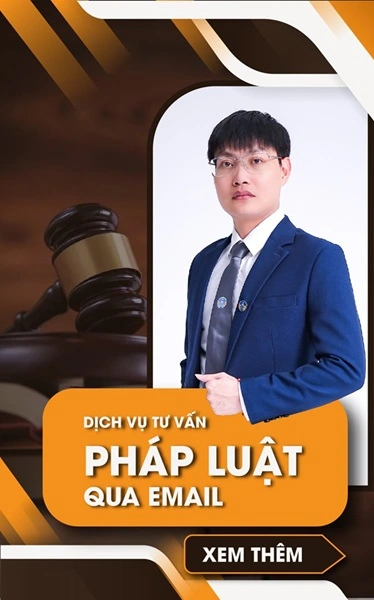Trong bài viết dưới đây chúng tôi sẽ cung cấp cho bạn đọc bài tập có đáp án Tiếng Anh lớp 9 Unit 4 hay và chuẩn nhất. Những bài tập này sẽ giúp các bạn học sinh rèn luyện và ôn tập lại những nội dung quan trọng trên lớp. Mời bạn đọc cùng đón xem.
Mục lục bài viết
- 1 1. Choose the word whose underline part is pronounced differently from the others:
- 2 2. Choose a word in each line that has different stress pattern:
- 3 3. Choose the best answer A, B, C or D:
- 4 4. Put the correct form of the verb the sentence with “ Wish”:
- 5 5. Choose a word/phrase from the box the complete the sentences:
- 6 6. Put the verbs in brackets:
- 7 7. Read the text carefully and decide whether the following sentences are true (T) or false (F):
- 8 8. Rewrite the sentences without changing their meanings:
- 9 9. Complete the sentences by changing the form of the word in capitals when this is necessary:
1. Choose the word whose underline part is pronounced differently from the others:
| 1. A. books | B. clubs | C. hats | D. stamps |
| 2. A. which | B. what | C. who | D. why |
| 3. A. community | B. computer | C. museum | D. custom |
| 4. A. impolite | B. night | C. tradition | D. slight |
| 5. A. education | B. question | C. pollution | D. collection |
| 6. A. populated | B. loaded | C. wanted | D. lived |
2. Choose a word in each line that has different stress pattern:
| 1. A. people | B. enough | C . picture | D. father |
| 2. A. depend | B. begin | C .agree | D. happen |
| 3. A. father | B. enjoy | C. attend | D. depend |
| 4. A. determine | B. pagoda | C. fabulous | D. convenient |
| 5. A. enjoy | B. picture | C. develop | D. determine |
| 6. A.picture | B. people | C.agree | D. visit |
1- B;
3. Choose the best answer A, B, C or D:
1. We can learn how ______ banh chung at Tet.
A. make
B. to make
C. making
D. made
Đáp án: B
2. Men used ______ the bread winner of the family.
A. be
B. to be
C. to being
D. to
Đáp án: B
3. Should we try to ______ every custom or tradition which is in danger of dying out?
A. preserve
B. act out
C. entertain
D. open
Đáp án: A
4. The children in my home village used to go ______, even in winter. Now they all have shoes.
A. on foot
B. bare-footed
C. playing around
D. played around
Đáp án: B
5. At night they used to entertain ______ by telling and acting out stories.
A. them
B. their
C. themselves
D. themself
Đáp án: C
6. There is usually a ______ gap between the old and the young, especially when the world is changing so fast.
A. generation
B. value
C. age
D. old
Đáp án: A
7. It must be incredible travelling by dogsled. I wish I ______ it.
A. can do
B. could did
C. could do
D. can done
Đáp án: C
8. Every nation has respect for their long-preserved ______.
A. behaviours
B. practices
C. traditions
D. traditional
Đáp án: C
9. Once a month I went downtown to collect the post and then walked from village to village, ______ were far away from each other.
A. which
B. where
C. that
D. where
Đáp án: A
10. In Viet Nam, ______ often refers to age and social position, not to wealth.
A. seniority
B. tradition
C. generation
D. culture
Đáp án: A
11. I also passed______ the news I had heard from the town and the other villages.
A. in
B. on
C. down
D. at
Đáp án: B
12. Giving lucky money to the young and the old at Tet is a common ______ in many Asian countries.
A. behavior
B. practice
C. tradition
D. cultural
Đáp án: C
13. She used to live in an igloo: a domed house ______ from blocks of ice.
A. to build
B. built
C. building
D. to built
Đáp án: C
14. I wish people in the world ______ conflicts and lived in peace.
A. don’t have
B. doesn’t have
C. didn’t have
D. didn’t having
Đáp án: C
15. I have told you many times ______ the door open.
A. not leave
B. not to leave
C. to not leave
D. not to leaving
Đáp án: B
16. I wish my friends spent less time ______ computer games and more time outdoors.
A. play
B. to play
C. playing
D. played
Đáp án: C
17. The farmers in my home village ______ rice home on trucks. They used buffalo-driven carts.
A. used to transport
B. used to be transported
C. didn’t use to transport
D. used to transport
Đáp án: C
18. A ______ is used to make the sound much louder so that many people can hear it from a distance.
A. loudspeaker
B. radio
C. television
D. computer
Đáp án: A
19. I suppose it was a special occasion, ______?
A. was it
B. wasn’t it
C. don’t I
D. doesn’t I
Đáp án: B
20. He could be fired for his rude ______ towards the VIP guest.
A. behaviour
B. practice
C. tradition
D. Practices
Đáp án: A
4. Put the correct form of the verb the sentence with “ Wish”:
1. I wish I ( live) ……………. near my school.
2. I wish I ( know) ……………. her address.
3. I wish I ( be ) ……………. taller.
4. I wish I (meet) ……………..her now
5. I wish he (not leave) ………………….here.
6. I wish I ( be )…………………a doctor when I grow up
1. I wish I ( live) …lived…………. near my school.
2. I wish I ( know) ………knew……. her address.
3. I wish I ( be ) ………were……. taller.
4. I wish I (meet) ………met……..her now
5. I wish he (not leave) ………didn’t leave………….here.
6. I wish I ( be )……would be……………a doctor when I grow up
5. Choose a word/phrase from the box the complete the sentences:
| Physical | traditions | street vendors | worry |
| acting out | behaviour | loudspeaker | imagination |
1. He could be fired for his rude ………towards the VIP guest.
2. Use your……… and draw a picture of your dream house.
3. A……… is used to make the sound much louder so that many people can hear it from a distance.
4. Women in the past did not have to ……… too much about their weight, diets, or obesity.
5. Children love………… the stories as they tell them.
6. Every country has its own customs and………
7. Eating from………… is a popular habit of people in big cities in Viet Nam.
8………… punishment was common at schools in the past.
1. He could be fired for his rude ………behaviour………towards the VIP guest.
2. Use your…….imagination……….. and draw a picture of your dream house.
3. A………loudspeaker;……… is used to make the sound much louder so that many people can hear it from a distance.
4. Women in the past did not have to …………worry……. too much about their weight, diets, or obesity.
5. Children love………acting out………. the stories as they tell them.
6. Every country has its own customs and……traditions………
7. Eating from…………street vendors……… is a popular habit of people in big cities in Viet Nam.
8……Physical;…………… punishment was common at schools in the past.
6. Put the verbs in brackets:
1. He (go)………. to school by bike everyday
2. I am looking forward to (hear)…… from you
3. I wish I (can)……… speak English well
4. In the 18th century, jeans (make)……….comprised
5. If I saw a UFO, I (be)……Surprised
6. We will go camping tomorrow if it (not rain)……
7. She spends two hours (work)……… part time at a supermarket
near her house everyday.
8. When I came, they (talk)……… happily about the last night’s movie.
9. You (see) …… Miss. Jenifer since she left for France?
10. She used to (take) ….to school by her mother.
Đáp án:
1. He (go)………goes………. to school by bike everyday
2. I am looking forward to (hear)…………hearing………. from you
3. I wish I (can)……could…… speak English well
4. In the 18th century, jeans (make)…………were made……comprised
5. If I saw a UFO, I (be)…………would be……… Surprised
6. We will go camping tomorrow if it (not rain)…………does not rain………
7. She spends two hours (work)……working…… part time at a supermarket
near her house everyday.
8. When I came, they (talk)………were talking………happily about the last night’s movie.
9. You (see) ……have you seen…… Miss. Jenifer since she left for France?
10. She used to (take) ……be taken…….to school by her mother.
7. Read the text carefully and decide whether the following sentences are true (T) or false (F):
Before Stone Age, people used to eat fruits, leaves and anything they found from the forest. However, this habit changed into hunting animals, preserving food items and planting and growing vegetables, which eventually led into farming different crops like maize, corn, and rice. People were healthy, they rarely had diseases and never needed extra exercise because their daily work kept their bodies running.
At present, we have turned the agriculture into a mass scale production, including machinery,technology and pesticides, all of which came in with the green revolution. With green revolution agriculture and the traditional farming culture turned upside down. As far nor now, farmers who are able to cope up with the multinational cooperation’s and their large-scale, expensive products, pesticides and high-yielding varieties of seeds, keep producing crops for the market. Yet the traditional, low-income farmers even today, especially in Asian countries, are in a dire state.
Fast food is another major factor in modern food habits. Although many people find it convenient, it leads to many health conditions. Today people are unhealthy, needs medicine and functions on diets and exercise machines.
1. People in the past ate healthy food so they rarely had diseases.
2. The green revolution is the decrease in agriculture production.
3. The green revolution caused agriculture to change completely.
4. Farmers nowadays can’t meet the great demand of the food market.
5. Fast food is convenient but it’s not good for health.
| 1. T | 2. F | 3. T | 4. F | 5. T |
8. Rewrite the sentences without changing their meanings:
1. It’s a pity I didn’t take my doctor’s advice.
I wish ……
2. The bread is so hard. We can’t eat it.
The bread isn’t ……
3. She isn’t accustomed to life in London.
She’s not used to ……
4. “Don’t forget to phone the office,” she told him.
She reminded ……
5. I’m afraid I haven’t got time to listen to you.
I wish ……
1. I wish I had taken my doctor’s advice.
2. The bread isn’t soft enough for us to eat.
3. She’s not used to living in London.
4. She reminded him to phone the office.
5. I wish I had time to listen to you.
9. Complete the sentences by changing the form of the word in capitals when this is necessary:
During the First World War, at a time when there was lots of (1)__________ (HATE) in the world, one man did more than anyone else to spread (2) __________ (HAPPY). That man was the (3) __________ (COMEDY), Charlie Chaplin. Audiences around the world watched his films and each new one caused a lot of (4) __________ (EXCITED). Chaplin created the character of the little tramp and people (5) __________ (SYMPATHY) with this poor man. Up until then, film comedies had been (6) __________ (NOISE) and very fast. Although they were fun and (7) __________ (ENERGY), the audiences became (8) __________ (BORE) with seeing the same situations. Chaplin produced a different kind of comedy. It was slower and more (9) __________ (EMOTION). His films both made people laugh and touched their (10)__________ (FEEL). Even today, his films are enjoyed by many people of all ages.
During the First World War, at a time when there was lots of (1)____haters______ (HATE) in the world, one man did more than anyone else to spread (2) _____happiness_____ (HAPPY). That man was the (3) ___comedian_______ (COMEDY), Charlie Chaplin. Audiences around the world watched his films and each new one caused a lot of (4) ______excitement____ (EXCITED). Chaplin created the character of the little tramp and people (5) ______sympathized____ (SYMPATHY) with this poor man. Up until then, film comedies had been (6) _____noisy_____ (NOISE) and very fast. Although they were fun and (7) ____energetic______ (ENERGY), the audiences became (8) _____bored_____ (BORE) with seeing the same situations. Chaplin produced a different kind of comedy. It was slower and more (9) ______emotional____ (EMOTION). His films both made people laugh and touched their (10)____feelings______ (FEEL). Even today, his films are enjoyed by many people of all ages.




